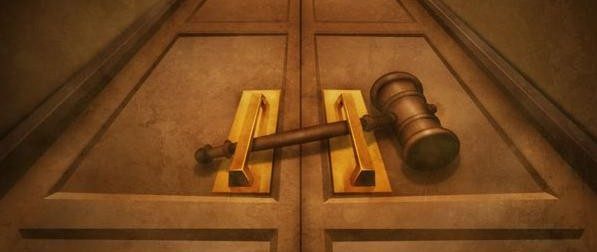Click here to view the judgement
In this age of docket explosion it is the duty of the court to dispose of suits in summary way where there is no possibility Of the defense to succeed even if it is tried as a suit. A matter can be decided on the basis of affidavit of evidence without calling for an oral testimony. The court has to find out whether the issue raised can buy decided on the basis of affidavit of evidence, is upheld by the high court of Calcutta, by the learned bench of the Honourable Justice Soumen Sen, in the case of Auroshikha Vinimay Pvt. Ltd V. Kai Commercial Pvt. Ltd G.A. No. 825 of 2015.
FACTS
The case of the plaintiff in short is that the plaintiff is the owner of two flats being Flat No.1A and 1B on the first floor along with two servant quarters, measuring about 3216 sq.ft. situated at Premises No.12A, Camac Street, Kolkata-700 017. The defendant was in occupation of the said property in terms of a Leave and Licence Agreement dated 26th September, 2012 since terminated on 23rd May, 2014.
In or about September 2012, the defendant approached the plaintiff for letting out the said property as the defendant represented that they require a suitable space in central Kolkata for running a restaurant. Following such request a Leave and Licence Agreement dated 26th September, 2012 was entered into between the parties in respect of the said premises. The said agreement was for a period of three years with effect from 1st November, 2012 till 31st October, 2015. In terms of the agreement, the defendant was under an obligation to pay licence fees at Rs.100/- per sq.ft. per month equivalent to Rs.3,21,600/- for a period of three years in which Rs.51,000/- was agreed to be paid for the first 16 months while the balance amount of Rs.2,70,000/- was to be adjusted against payment towards Corporation rates and taxes, electricity dues and building maintenance charges. Under the said agreement after a period of 16 months from 1st November, 2012, that is, on and from March, 2014, the defendant shall deposit a sum of Rs.19,26,000/- as interest free refundable security deposit. On the basis of the aforesaid agreement, the defendant was put into possession. The defendant, however, has failed and neglected to pay the agreed licence fees and continued to use, occupy and exploit the said space for running a restaurant therefrom. The plaintiff claims that a sum of Rs.39,07,573/- is due and payable on account of unpaid licence fee from 1st November, 2012 to 23rd May, 2014.
The defendant defaulted in making payment of Rs.19,26,000/- towards the security deposit. The cheque issued by the said defendant in partial discharge of its liability for the aforesaid sum, bearing No.34189 dated 1st March, 2014 was dishonoured on presentation and was returned to the plaintiff with endorsement insufficient funds.
JUDGEMENT
The court highlighted that the issues raised can be decided without any further evidence and on the basis of the materials on record the Court can dispose of the said matter without requiring the parties to wait for a trial which would involve oral and documentary evidence. The important thing laid out by the Court is that, it is important in deciding an application of this nature is whether the defendant is able to make out plausible defence and such defence is likely to succeed at the trial. Even a faint chance of success at the trial might at times persuade the Court to exercise its discretion against passing a decree in favour of the plaintiff. However, it is laid out that where the Court finds that the defence is patently absurd and moonshine the Court would not hesitate to pronounce the decree. In this age of docket explosion, it is the duty of the Court to dispose of suits in a summary way where the Court finds that there is no possibility of the defence to succeed even if it is tried as a suit. A matter can be decided on the basis of affidavit of evidence without calling for an oral testimony. The Court has decided to find out whether the issue raised can by decided on the basis of affidavit of evidence. The case of an oral agreement for sale is so patently absurd that it is very difficult to accept the contention of the defendant that the part of the amount paid for occupation of a very valuable property at Camac Street was towards sale consideration. It is also unbelievable and unacceptable that a company would enter into an oral agreement for sale without any correspondence recording that such an agreement was entered into between the parties. The material on record does not even suggest that any such agreement for sale was ever entered into between the parties. The defendant has also failed to explain the payment of Rs.3.21 lakhs on 1st March, 2014 which almost corresponds to the amount liable to be paid by the defendant for use and occupation of the said premises. Similarly was the case in respect of payment of Rs.51,000/-.
Judgement reviewed by Rani Banerjee


